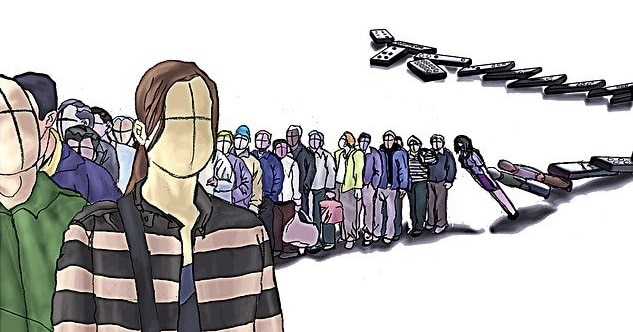MILLIONS face the threat of serious debt problems when the government’s furlough scheme ends this month for an estimated 1.9 million.
And the recruitment sector has warned that the end of the scheme is unlikely to help address the UK’s record number of job vacancies, in the short term at least.
The latest jobs recovery tracker from the Recruitment and Employment Confederation (REC) showed there were 1.66 million jobs on offer at the end of August – an increase of 193,000 over the previous seven days alone.
Payments are set to end on September 30, leaving questions about how staff will cope if their employers can’t take them back and if they can’t find a suitable alternative job.
Chancellor Rishi Sunak launched the initiative at the start of the pandemic last year to stem job losses as businesses were forced to close temporarily or operate with restrictions.
It supported 11 million workers during the pandemic by paying them 80% of their wages – up to £2,500 a month.
The Government initially covered the whole bill for the cost of the help until companies were forced to start contributing ten and then 20 per cent of the cost.
While it’s true that there are sectors such as haulage that simply can’t fill jobs, and GDP, the strongest indicator of economic activity, has recovered somewhat, there are others that have changed or shrunk in many cases.
In the hospitality sector, for example, a combination of staff cuts and furloughed employees may leave as many as four workers chasing each job, according to the IPPR, who say this could lead to uncertainty for up to 300,000.
The self-employed have other issues, according to Peggy de Lange, VP of International Expansion at Fiverr, who said freelancers have “battled for eligibility and the devastating repercussions of this are far from over”.
She added: “With furlough support being withdrawn from this month, and our research revealing 82 per cent of UK SMEs took a financial hit due to the pandemic, this decision will only increase pressure on businesses that are already struggling.
“For the self-employed, on whom insufficient government support has already had a detrimental impact, withdrawing the furlough scheme this month as Covid-19 cases continue to rise and before businesses have had the chance to economically recover could be incredibly detrimental.
“After a year and a half of uncertainty and financial struggle, freelancers and SMEs alike need to be assured that they will not be forgotten throughout the final phase of the pandemic and the government must consider the full impact this decision will have on the self-employed.”
Related
Time now for Furlough planning
What does Furlough mean – in English
Furlough extension – all the reaction


